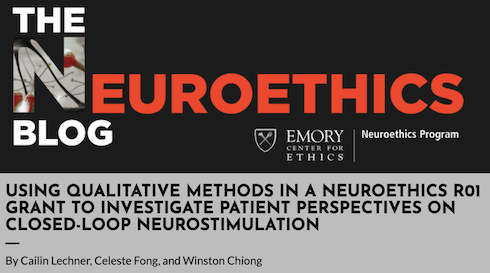news
Welcome Clara! Finally!
Winston Chiong
February 1, 2021
It’s been a very long time coming, and honestly I wasn’t sure what to mark as our date for welcoming Clara Sanches to the lab. Let’s see–she first gave a presentation to our lab on her prior work back in March 2020, and we originally offered her a postdoc in April 2020 to begin September 2020. Unfortunately, because of the pandemic her embassy interview kept getting postponed, and honestly we started to worry about whether her visa would ever come through! With lots of wonderful help and flexibility from the UCSF International Students and Scholars Office and the Office for Postdoctoral Scholars, we were able to set up a remote-work position in December 2020 while waiting for her interview, and she was finally able to come to San Francisco in February 2021 (though, of course, we’re all still working remotely).
Clara joins us from Portugal via the ICM-Pitié Salpêtrière in Paris (the birthplace of neurology), where she did her PhD and initial postdoc with Marc Teichmann and Antoni Valero-Cabre. She brings tremendous experience in working with patients with rare neurodegenerative conditions, including advanced research on noninvasive brain stimulation in patients with progressive supranuclear palsy, behavioral variant frontotemporal dementia, and primary progressive aphasia. She has just published a comprehensive review of noninvasive brain stimulation in neurodegeneration informed by her work. Here at the UCSF Memory and Aging Center she’ll be working on our Genes, Brains and Decisions and Decision-Making in Alzheimer’s and Related Dementias projects, developing new skills in functional neuroimaging analysis. We are so glad to have her and grateful for her patience and perseverance!
Decision Lab Send-off
Clayton Young
July 7, 2020
It’s that time of year again! This send-off was a little more bitter than sweet because of physical distancing. Still, we couldn’t be more excited to see what psychological insights Heather will contribute to UCSD’s Rady School of Management, and how Emory’s School of Medicine will benefit having Madhu’s caring intellect (we assume they’ll probably have more compost bins). We’re hoping to drag you to our virtual game nights on occasion, but that won’t prevent us from missing everything you both bring to the lab.
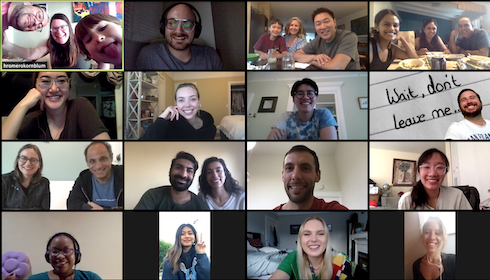
Congratulations UCSF med school graduates!
Winston Chiong
May 18, 2020
I was pleased and proud to join the first-ever and possibly-last UCSF School of Medicine Virtual Commencement Ceremony to celebrate the pioneering class of 2020, especially Decision Lab alumni Alex Beagle, (the first Decision Lab research coordinator, prior to med school), Julia Heunis (the first Care Ecosystem CTN, prior to med school), and Neil Vaishnav (current Decision Lab advanced degree record-holder). While I think we all were sad not to be able to gather together, the ceremony was also the most meaningful I can remember. Every day we are now reminded of the importance of compassionate, evidence-informed and patient-centered care, and we know that Alex, Julia, Neil and their classmates will soon be doing some of the very most important work in the midst of this historic pandemic.
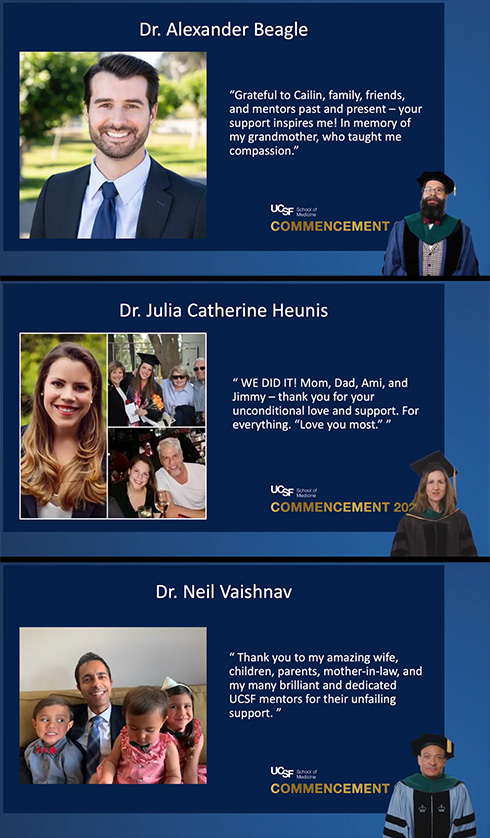
Virtual bday party for Winston!
Madhu Manivannan
March 27, 2020
The team surprised Winston via Zoom for his birthday, popping into a scheduled meeting with fun backgrounds and birthday wishes. In light of these difficult and uncertain times, the members of the Decision Lab are making sure to support one another and stay socially connected while physically distancing!
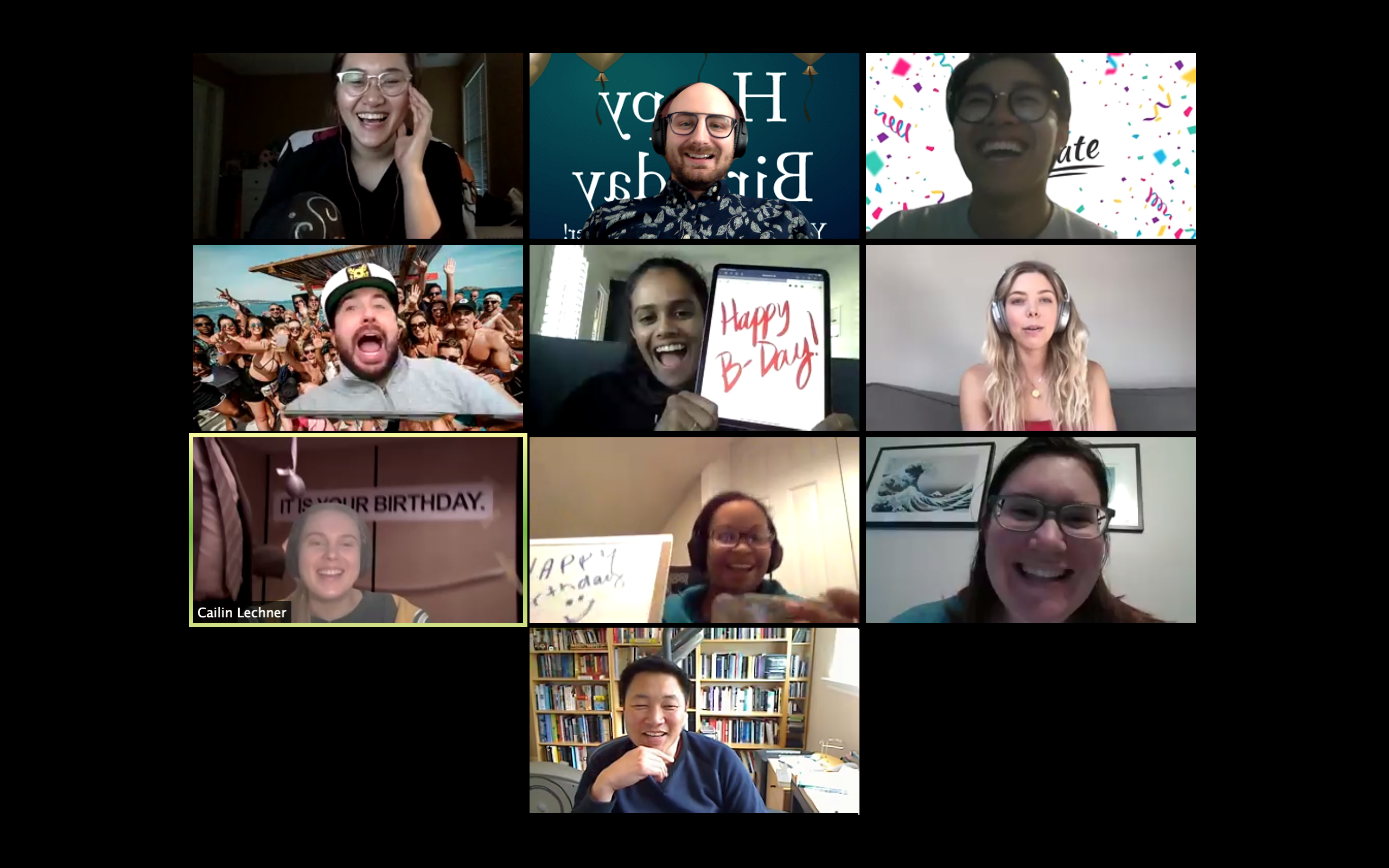
Neuroethics in Novel Neurotechnologies Blog Post
Celeste Fong
February 18, 2020
Our qualitative methods team was invited by The Neuroethics Blog to write a piece on our Neuroethics in Novel Neurotechnologies project. The post was for their series highlighting the Neuroethics R01 grants supported by the NIH BRAIN Initiative. Click the image below to see what we have been getting up to!
Planting at Rancho Corral de Tierra
Madhu Manivannan
February 1, 2020
The Decision Lab trekked out to the coastal woodlands of Rancho Corral de Tierra in San Mateo County to volunteer with the Golden Gate National Parks Conservancy. We used short pick-axes to collectively plant 196 bunches of native grass on the hills of the preserve, which will create pockets of open land for endangered plants to grow in. It was a beautiful Saturday morning filled with dirt-covered earthworms, interesting and obscure plant facts, and great company!
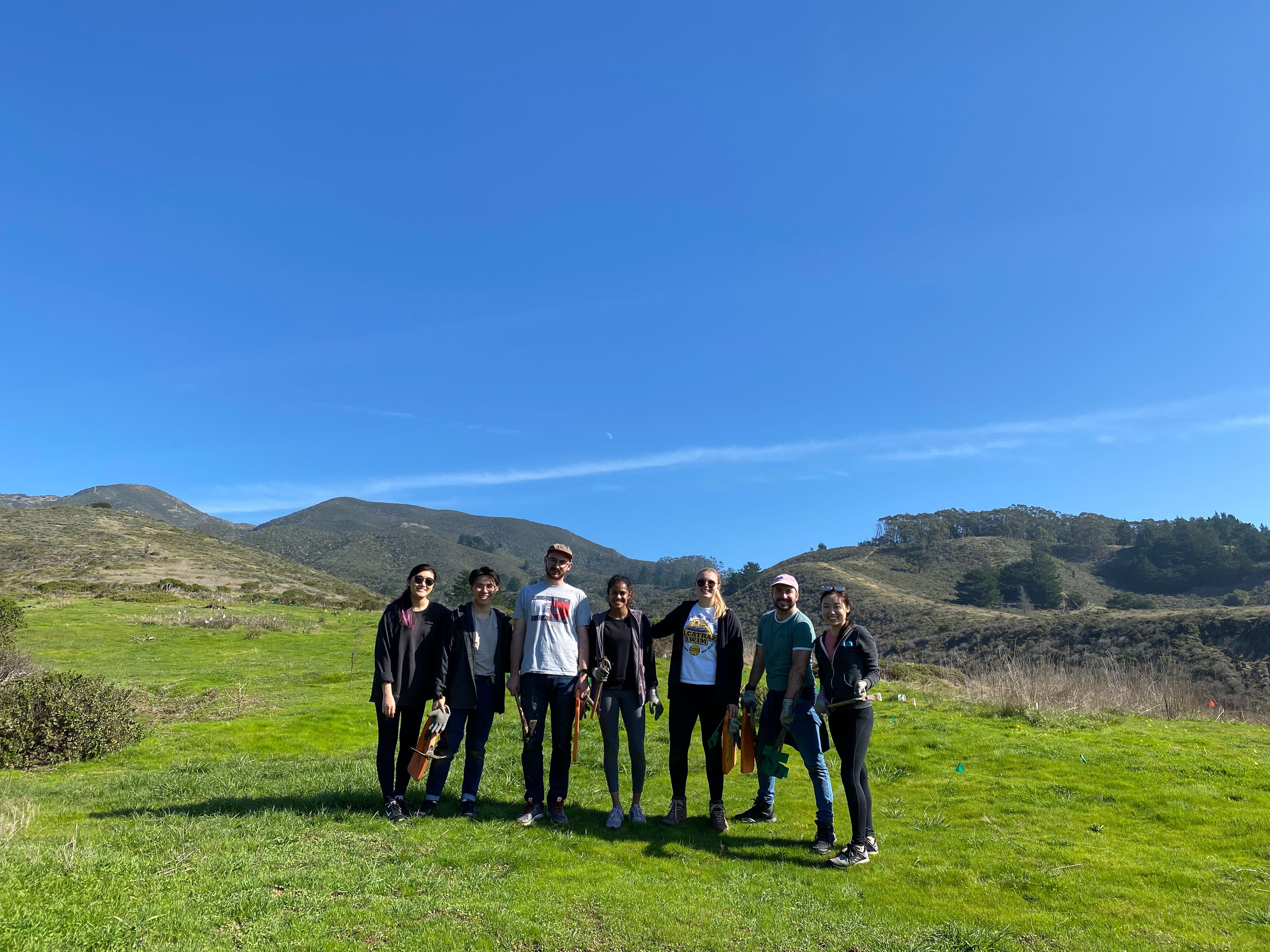
 Decision Lab
Decision Lab